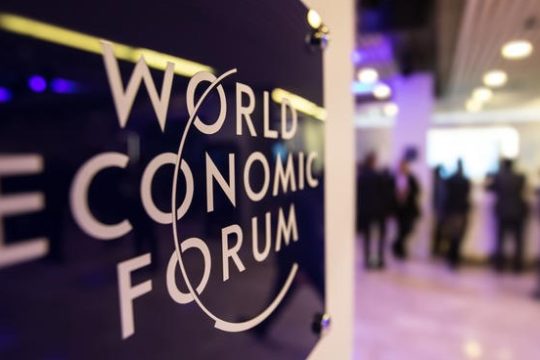Today’s executives are trying to determine which of these trends will be fleeting, which represent a larger shift with implications 5 or 10 years down the road, and how to manage through them to create the most long-term value.
The following summary reflects the opinions and insights of our members’ CEOs and guests about the trends their organizations are grappling with, strategies being deployed to navigate them, and issues that need further consideration.
Near-term trends are creating uncertainty
China
The reopening of China following the removal of its Covid restrictions had the attention of many in the room. Chinese households save at some of the highest rates in the world, and the savings rate increased even further during the period of lockdowns, giving Chinese households immense levels of dry powder. Participants noted:
- A strong rebound in spending and activity in the near term could drive up energy prices and inflation globally.
- China is interested in attracting foreign investment, but it is very challenging for investors given the uncertainty around geopolitical tensions with the US, particularly in any area that could be considered related to security.
- With the now-declining population of China and the restructuring of supply chains globally, the forward return outlook is significantly lower.
Energy Prices
Investment in energy has been a dominant subject over the past year with security issues coming to the fore, and this focus on security will continue. Energy prices will remain elevated and volatile, and the demand for secure fossil fuels will persist even as the shift towards renewable energy accelerates. Participants noted:
- Volatility in the energy markets is expected to persist based on myriad issues such as the end of the “shale boom” in the U.S., Iran’s precarious geopolitical position, Venezuelan production, Chinese growth, and sanctions on Russian exports in light of the war in Ukraine.
- Prices in general are expected to remain elevated as past underinvestment means that supply will not be able to meet demand at affordable prices for some years.
- Investment in today’s highly carbon-based energy system is unpopular but crucial for energy security and affordability, even as the energy transition accelerates.
“Economic policy, industrial policy for the past couple decades has been driven by profit maximization. Now, there’s a national security lens influencing how capital is being deployed to strategically sensitive investments.”
Long-term trends require a strategic rethink
Companies and investors tend to manage short-term deviations from long-term trends well. It is much harder to determine how to adjust strategy in the face of true shifts in one’s operating environment. Participants identified the following trends that they expect to play out over a longer period of time and, accordingly, require a larger strategic rethink.
“It’s not like going through turbulence on your way to your destination; it’s like landing at the wrong airport.”
Decarbonization
It is evident that decarbonization is a generational shift that is just now beginning to unfold, and companies and investors are reconsidering their strategies to be prepared for a lower-carbon future. Those companies that aspire to be greener, and execute strategies over time to reach those aspirations, will be best positioned for long-term performance. Participants noted:
- Decarbonization is required for long-term performance, not a trade-off against it. There is a compelling story to be told around the value creation potential of decarbonization.
- Decarbonization is especially important in the higher emitting sectors, and that transition process will require capital, a long-term mindset, and the willingness to take on “dirty” assets. That being said, the race to net-zero has caused some unproductive habits, and new ways to measure the climate transition must be found.
- The politicization of climate investing is a serious issue, and there is a large segment of the population that remains unconvinced. This is an idea driven by investment, returns, and long-term thinking, not by politics.
Deglobalization or global fragmentation
For most of the past 50 years, globalization has been the wind in the sails of companies and investors with a multinational footprint. However, those tailwinds have shifted particularly in tech, supply chains, and portfolio construction philosophies. Participants noted:
- For tech companies, there is increased concern about the balkanization of the internet and tech capabilities. Increased protections around data region by region can lead to fragmentation, and rules around data residency have changed how information can flow globally. In addition, China has changed its regulatory stance on the tech sector and is now giving more confidence to the big tech platforms for growth.
- Likewise, the push to reconfigure supply chains through onshoring or “friend-shoring” has grown for many companies, and many who cannot operate without partners in China are pursuing “China Plus One” strategies.
- Institutional investors are rethinking the global footprint of their portfolios and recalibrating the potential risk and return in light of shifting geopolitical tensions. Over the past 10-15 years investor portfolios were only different at the margin; now there are very different views across issues, and it is resulting in significant portfolio dispersion.
“Portfolios have been structured on a single path view of global, tech-driven growth, and we need a reset.”
Demographics
Changing demographics globally and a widening sense of inequity will have profound implications moving forward. Participants noted:
- Aging populations, particularly in Asia, and younger, fast-growing populations in many African countries are causing companies to reconsider historical norms regarding labor availability and supply chains.
- From a gender perspective, despite a focus on diversity and inclusion, the continued inability of companies to retain women remains a focal point, as many have left the workforce in the last three years. Reversing this trend would be a welcomed solution to a tight labor market.
- There is a vast divide between the top 25% and the bottom 25% in most countries. The disruptions of 2022 had a disproportionate impact on low-income and vulnerable populations; most individuals do not believe their families will be better off in 5 years than today.
- How companies take care of their employees and local communities is critical. Investors are starting to recognize that these issues of inequity can be destabilizing to companies, countries, and their portfolios.
Digitization
The impact of artificial intelligence is yet to be fully understood but is a generational shift affecting individuals, workforces, companies, and global security. And it represents an enormous disruption to business models and will generate as yet unclear investment opportunities. Historically, digitization has been about cost-cutting and mitigating risk. The other side is thinking about what is possible with AI, robotics, and quantum computing and recognizing that the long-term winners will be those that optimize the use of these technologies.
The way forward raises important questions
In light of these trends, both near- and long-term, how can businesses navigate a way forward that generates strong and sustainable performance? The group agreed that having a clear vision for long-term value creation is a critical starting point and would allow enterprises to lead with integrity.
As we consider how the interaction between investors and companies creates long-term value – or drives short-term behavior – a key issue from the conversation that deserves further consideration is the role of investors and a need to ask several fundamental questions:
- Why do we trade as much as we do?
- Do we mean to own “businesses or paper”?
- What is driving portfolio returns – a zero-sum game, growth, or operational efficiency?
- How do we benchmark a long-term portfolio intended for sustainability?
- What do we really mean by a net-zero portfolio, and how does that drive real-world decarbonization?
- Are investors in a good position to set parameters on compensation or diversity?
- Can markets be a driver of more wealth equity rather than inequity?
Over time, acting with conviction while remaining both flexible to the pressures of the day and resilient is necessary to win over the long term.
Moving forward, FCLTGlobal’s work will aim to solve how both companies and investors can meet the challenge of performing over the long term while also making good decisions amid a time of historic disruption. To learn more about our upcoming research, contact us at [email protected].
 Download Article
Download Article


